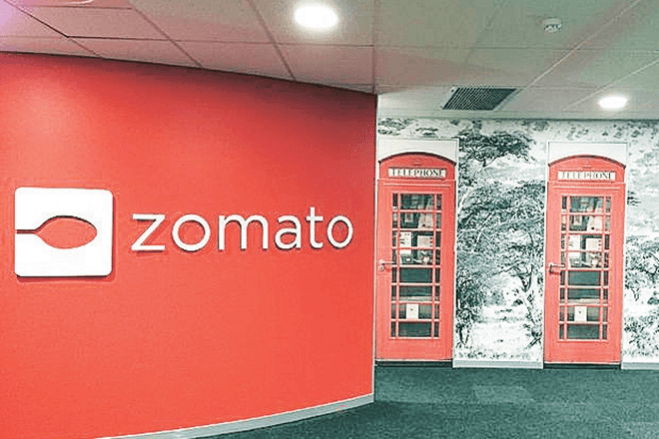In a bid to gain maximum consumer mind share in a highly competitive food delivery space, the US e-commerce retailer will now be piloting on-demand delivery of food to select localities in Bengaluru.
This move by the e-commerce giant, Amazon comes at a time when food delivery service startups Swiggy and Zomato are struggling for profits, have cut discounts and tightened cost structures. The company is looking at launching exclusive brands in partnership with restaurants for specialized cuisines including Korean and Japanese.
Also, with the ride-hailing firm Uber backing out of the food delivery business in India by selling UberEats India to Zomato last month in return for a 10% stake, to ensure it is keeping a foot in the door nevertheless.
Foraying into food delivery space
Entering the food delivery space is part of Amazon's larger plan to build a comprehensive product portfolio – from grocery and food to electronics and home products – for its top customers who have availed its Amazon Prime subscription service. According to a top executive at Amazon, the intent behind this move is to capture all large categories where high-value consumers spend and make repeat purchases convenient, affordable and seamless, especially in the top cities.
As of now, the Amazon food delivery service is open to its own employees and pilots are underway across five high-density pin codes across the city – HSR, Bellandur, Haralur, Marathahalli and Whitefield, according to the executive and restaurant partners in Bengaluru.

Amazon's food delivery business is slated to be launched in March in Bengaluru first, with the service launching on the Prime Now app. Raghu Lakkapragada, director-product management at Amazon will be leading the initiative.
In the run-up to the launch, the e-commerce giant has been testing its food delivery service with select restaurant partners in Bengaluru. According to unnamed sources, the commissions will be about half of what Swiggy and Zomato charge its partner restaurants. Efforts have been on since last year to launch its food delivery business for several quarters, planned to be mostly around Diwali last year, which was rather delayed for reasons unknown.
Partnerships and competition in India
We have not been able to ascertain the kind of business agreement Amazon has formed with Indian restaurant partners, who are frustrated with several online food delivery players competing against each other to grab maximum consumer share.
To be able to tackle the competition, Amazon will have to make significant investments in logistics, marketing, the restaurant ecosystem and technology to scale its food delivery business in India.

Last week, Prosus Ventures backed Swiggy raised $113 million, led by South African Internet giant Naspers, an existing investor. This move came within weeks of Zomato acquiring UberEats India for about $350 million. While both startups Swiggy and Zomato have successfully raised more than $2 billion together, they are still not profitable; losing more than $15 million each month to acquire new customers and retain existing ones.
Will Amazon Food Delivery Service Make Profits?
A food delivery expert opined that the food delivery firms have little choice but to keep subsidizing the cost of food items on their platform, as otherwise most of their customers can't afford them.

Unlike developed markets such as the US where the food delivery business can be profitable with the value of each delivery item $33. Figuring out a path to profitability in the food delivery business is particularly challenging in India, considering the delivery cost drops down to $4 per item.
Considering lower profits in the recent past, both Zomato and Swiggy have expanded their food business offerings - with the latter running the largest cloud kitchen network in India, and Zomato working on "Project Kisan" to procure raw material directly from farmers and fishermen in an attempt to assume control of the supply of items to restaurants.
Swiggy alone operates in more than 520 cities in India and maintains partnership with over 160,000 partners. Swiggy is adding 10,000 new partners to its platform each month, which does not mean to say that it would be easy for Amazon to penetrate into the food delivery space in India.

















